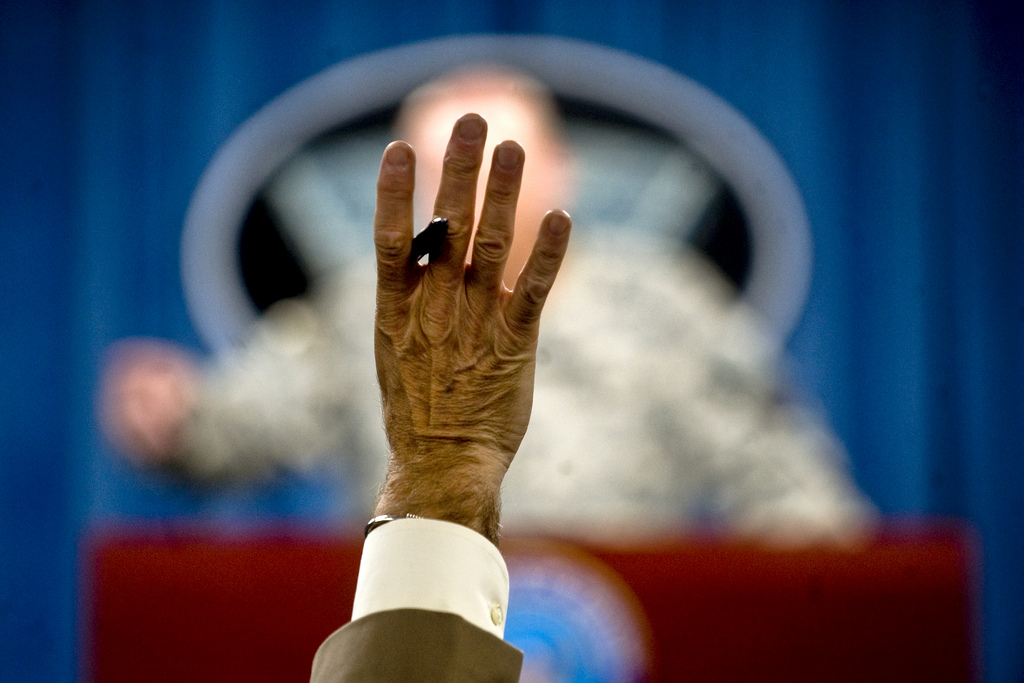Author: Bill Einreinhofer, Chair, Broadcast Journalism Department, New York Film Academy

Q. What is Broadcast Journalism?
A. Today the term “Broadcast Journalism” encompasses a wide variety of media forms. There is legacy media, such as network and local television news, as well as cable news; specialized formats, including sports, entertainment, fashion and travel; and web news, which encompasses the websites of traditional print outlets as well as innovative digital news services. Increasingly, organizations are employing cross-platform distribution strategies, in an effort to reach their target audiences in as broad a way as possible.
Q. What do I need to learn to be a successful Broadcast Journalist?
A. There are certain basic skills that are applicable in almost every media setting. You have to know how to research and write. These are indispensible abilities. You must be able to create works within establish forms: the Voiceover, the News Package, the Interview Profile and the Long-Form Story. If your goal is to work on-camera, you must become comfortable working in the field, as well as in the studio. Hands-on camera and editing experience is a real plus, especially for Internet start-ups, which often have a small staff and “everyone” is expected to do “everything.”
Q. What background should I have?
A. While it is certainly helpful to have previous media production and journalism experience, it is not required. Each of our NYFA courses begins with the most basic of knowledge. This way, both those with some prior experience and those who are novices will build their new skills on a proven, comprehensive foundation. Similarly, if you have already narrowed your career goals it is possible to use your time at NYFA to develop your storytelling abilities in a specific genre. If you are unsure, studying at NYFA will help you determine in which area(s) you have the most aptitude.
Q. What are the differences between the 4-week, 8-week and 1-year NYFA Broadcast Journalism programs?
A. Our 4-week and 8-week programs encompass the first four and eight weeks of our 1-year program. In the 4-week program, you will develop basic reporting, shooting and editing skills in three essential areas: the Voiceover, the News Package and the Interview Profile. In the 8-week program, you also learn how to produce a Long-Form Story, plus develop a dynamic Resume Reel to show potential employers. 1-year students have the opportunity to develop and produce additional field stories, encompassing a wide range of genres. The more you produce, the better you get. In addition, they are the staff for NYFA News, a biweekly student-produced news magazine. This involves time spent in the Studio, as well as in the Control Room. Classes normally take place Monday through Friday, from 9 am until 3:30 pm. Shooting and editing takes place in the afternoon, evening and on weekends.
Q. How does the 12-week Evening Broadcast Journalism course fit into the program?
A. The Evening Broadcast Journalism course is designed for students who are busy working full-time during the day. Classes meet on three evenings each week (Monday, Tuesday and Thursday), and most field shooting and editing takes place on weekends. The content is similar to that offered in the 8-week day program, with an eye towards creating a Resume Reel that will help goal-oriented students in their current or future careers.
Q. How successful are NYFA Broadcast Journalism students?
A. You can find NYFA graduates working at a wide range of places, both in the United States and worldwide. Four of the 12 members of the September 2013 1-year Broadcast Journalism course received job offers before they graduated. Students from our 4-week and 8-week programs also enjoy success. Agence France Press (AFP) hired one of our recent 4-week graduates. A recent 8-week grad was hired as a general assignment reporter and substitute anchor at an ABC-TV affiliate in Texas. She was selected over 300 other applicants. A former Evening student now hosts fashion coverage on Time-Warner’s popular Glitz cable channel in Brazil, while one of her classmates is working at CCTV America.
